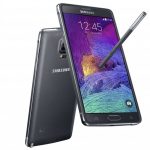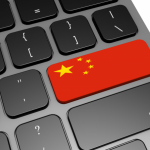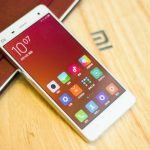Apple launches iPhone 6, 6 Plus in China, Samsung brings Galaxy Note 4 to US, UK

Today is a big day for both Apple and Samsung, as the two are launching their latest flagships in three of the largest smartphone markets: iPhone 6 and iPhone 6 Plus officially hit China, and Galaxy Note 4 arrives in US and UK. It's a "finally" moment in both cases, as the handsets were announced more than a month ago.
For Apple, having its new iPhones officially available for sale in China, the largest smartphone market, is a huge opportunity to boost sales in what could very well be its best quarter of the year. The pair had to launch later in China this year, due to regulatory hurdles. Among other things, the local government has forced Apple to beef up the security of iOS 8 to give the new iPhones its nod of approval.
Occupy Hong Kong protesters are locked in a technology arms race with the Chinese government

Thousands of protesters have flooded into the heart of central Hong Kong over recent days to demonstrate against the Beijing government's plans to phase out the semi-autonomous province's democratic elections by 2017. The campaign seeks to blockade Hong Kong's financial center, and represents the first major challenge to the rule of the new Chinese President, Xi Jinping.
For anyone confused by the protests, here's a bit of background: when the UK handed the territory of Hong Kong back to China in 1997, the Chinese government agreed to a policy of "one country, two systems" that allowed the city a high degree of control over its own affairs and kept in place civil liberties unseen on the mainland. It also promised the city's leader would eventually be chosen through "universal suffrage". That appears to not have been entirely true, and it's got thousands of people taking to the streets.
iPhone 6 and 6 Plus available in China next month

In case you did not know, China is the largest smartphone market worldwide, bigger even than the good old US of A. For the major players in the mobile industry, it is hugely important to be leading there, as being successful in China leads to a healthy market share growth overall, but, more importantly, a healthy increase in the bottom line also.
You can imagine then just how important it is for Apple to have its new iPhones on sale in China as soon as possible. Due to regulatory approvals, it has not happened yet, but luckily for the company, that will soon change.
Microsoft postpones Xbox One launch in China

Microsoft was set to officially start selling its next generation games console in China on September 23, but it appears the tech giant’s plans have gone somewhat awry.
Late on Friday the company issued a statement admitting that the launch was being postponed. "Despite strong and steady progress, we are going to need more a bit more time to deliver the best experiences possible for our fans in China," Microsoft said, somewhat cryptically.
Cheap handsets in India and China fuel huge global surge in smartphone shipments

New figures show that global smartphone shipments for 2014 are set to be 19 percent higher than the previous year. Juniper Research reports that handset shipments are forecast to jump from 985 million in 2013 to 1.2 billion this year.
Smartphone popularity continues to rise, and this has been driven -- at least in part -- by the appearance of handsets with bargain basement prices. While the likes of Apple push premium-priced smartphones, emerging markets are lapping up handsets priced at $150 and under.
Microsoft China reveals Windows 9's logo

Microsoft Windows 9's logo may have been accidentally outed by the company’s Chinese arm just 28 days before the company reportedly plans to officially unwrap the new version of Windows.
A post on the Microsoft China Weibo page, reported by CN Beta, showed a number nine made up of Windows tiles that have become a familiar feature of recent versions of the OS with the word Windows written underneath.
China gives Microsoft 20 days to play ball in antitrust probe

China is turning up the heat in its antitrust probe into Microsoft, with the authorities laying down a deadline for Redmond to respond regarding allegations of the software giant unfairly leveraging its products.
The State Administration for Industry and Commerce (SAIC) has laid down a time limit of 20 days for Microsoft to provide a satisfactory response to the antitrust probe which is focusing on Windows and Office (Internet Explorer and Windows Media Player have also been previously picked out as bones of contention, as well).
China focuses on Internet Explorer, Windows Media Player in its beef with Microsoft

There has been more (big) trouble for Microsoft over in China, as the software giant is now facing scrutiny of its web browser (Internet Explorer) and Windows Media Player.
This is part of a Chinese antitrust investigation against Redmond, which apparently kicked off when Microsoft's offices in China were swooped on by officials from the State Administration for Industry & Commerce (SAIC) at the end of July.
China takes on Windows, Android with new homegrown operating systems

China really is serious about shrugging off the shackles of Windows and other Western operating systems, as the country is apparently developing its own OS which is free from the security misgivings the government has about foreign software.
According to the Xinhua news agency (via Reuters), the Chinese government is looking to boost its domestic software industry and develop alternatives firstly for desktop operating systems (namely Windows), and then it will follow those footsteps in the mobile world with an Android usurper (or that's the theory). This is according to a certain Ni Guangnan, head of an "official OS development alliance" which was put together back in the spring.
Xiaomi's MIUI 6 beta is here and the Android ROM shames Google's stock experience

As a Linux user and lover, I prefer Android smartphones to iOS. While I love the freedom and functionality of Google's mobile operating system, there is one thing I hate -- the UI. That is a pretty big deal and usually a deal-breaker for a consumer. However, I put up with the dreary UI and clunky app drawer because I can customize it with different launchers, wallpapers and icon packs. While this is passable, I long for a redesign to mimic something similar to iOS 7. I crave beauty and art, but alas, Google seems disinterested in doing anything radical -- Android L "Material Design" seems too safe and boring.
The design savior for many years has been the Chinese-born ROM, MIUI; however, as more and more devices ship with impossibly hard-to-hack locked bootloaders, the gorgeous ROM has not been ported to as many devices; even unofficially. And so, users have been limited to MIUI-styled launchers, but not the full experience. Excitingly, MIUI 6 is now released in beta form, but sadly, most Android users will not be able to flash the beta, or the final version for that matter. This locked bootloader nonsense is a tragedy, as MIUI 6 is sexy as hell and puts Google's vision of Android to shame.
IBM signs landmark cloud computing security deal in China

In a country where state-owned enterprises are increasingly rejecting foreign technology that pose "security risks," IBM has revealed it will be helping bolster the security of a Chinese financial data firm using cloud-based risk analysis.
It's a significant move that executives are hailing as a model for future business in China, encouraging the country to embrace foreign technologies rather than shunning them.
Apple stays quiet on Chinese ban whispers

China has stepped up its tough stance on foreign technology suppliers with reports it has banned government purchases of Apple products.
Apple has so far declined to comment on reports that China’s government has banned its agencies from buying Apple products including iPad, iPad Mini, MacBook Air and MacBook Pro.
Xiaomi leads the smartphone market in China

Xiaomi's name may mean close to nothing in western markets, but the smartphone maker is well-known in Asia for its powerful yet affordable handsets. Take the new Mi 4 flagship, for instance. It rivals HTC's One (M8) in the specs department, but can be had for less than what Google asks for its Nexus 5. There's a similar story with other Xiaomi-made devices, that are proving to be extremely popular with consumers in China.
Xiaomi's smartphones are so popular in China that, in the second quarter of the year, they allowed the manufacturer to overtake worldwide leader Samsung in the local Asian market, according to a new report from analyst firm Canalys. Xiaomi, which is a Chinese vendor, was responsible for 14 percent of smartphone shipments in the country, surpassing Samsung, Lenovo, Yulong and Huawei. The combined market share of top worldwide vendors Samsung and Apple was just 18 percent in China in Q2 2014, as the two were able to ship just 20 million units put together.
China bans Kaspersky and Symantec antivirus

China has come down hard on US-based security company Symantec and its Russian counterpart Kaspersky, removing it from the list of approved antivirus providers in Chinese government computer systems.
The news comes amid a move from the Beijing government to limit Chinese dependency on foreign technology firms.
China investigates Microsoft for being a monopoly -- is the company guilty?

Thanks to technology, the business world is shrinking. Compared to prior decades, it is becoming far easier for businesses to operate in multiple countries. While this has the potential of being great, it also can be bad. After all, economies are not puzzle pieces that fit together nicely. No, sometimes there is an oil and water situation, where things don't mix.
Ultimately, communism and capitalism will never work together hand in hand. In other words, for an American company to operate in a communist republic, such as China, there will be pains. Today, it is revealed that China is investigating Microsoft for being a monopoly and has raided its offices.
Recent Headlines
BetaNews, your source for breaking tech news, reviews, and in-depth reporting since 1998.
© 1998-2025 BetaNews, Inc. All Rights Reserved. About Us - Privacy Policy - Cookie Policy - Sitemap.